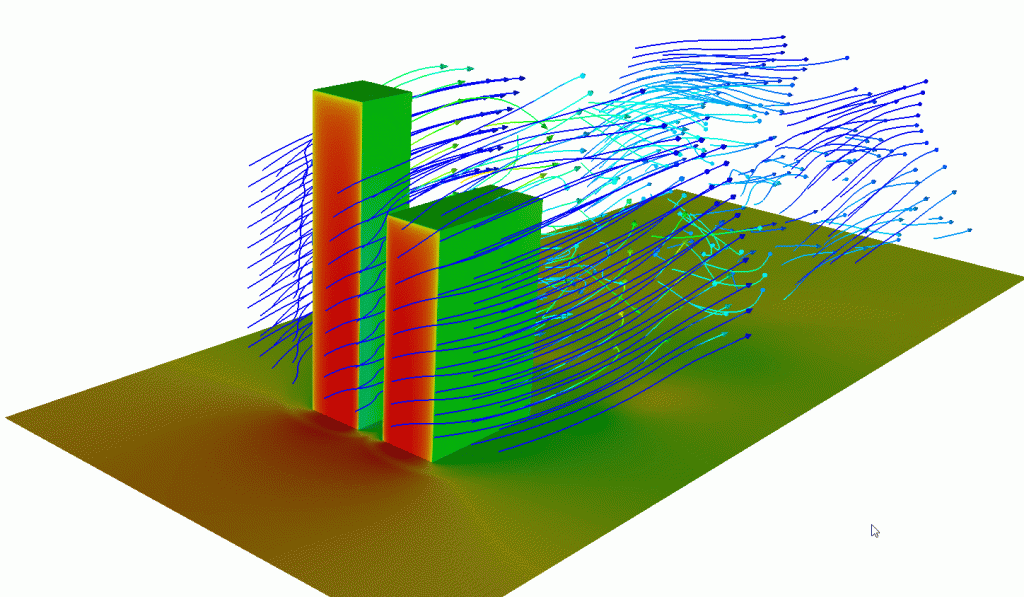
Innovation has been the cynosure of human life since the beginning of time. From steam-powered vehicles and wagonways to autonomous cars and electric powertrains, we have come a long way in increasing the quality of life with the birth of new technologies due to innovation.
The process of evolution through innovation can continue if the present-day engineers embrace the right solutions to improve the existing technologies and discover new ones.
Practical education is of utmost importance, but the pandemic has drastically changed the way we lead our lives. While the majority of the world is reopening, some of us are still confined to our homes. Lessons have become harder to attend in person under these circumstances, paving the way for online and on-demand learning.
To support traditional learning and make simulation and engineering topics accessible to anyone, Ansys offers free physics and engineering courses that combine real-world case studies and simulation to reinforce concepts.
What Are Ansys Innovation Courses?
Ansys Innovation Courses provides access to more than 150 free online engineering and physics courses that provide comprehensive skill-building through on-demand learning. You can watch online videos from subject matter experts, work through hands-on problems using the free Ansys software, and assess your retention using quizzes and homework.
The various disciplines covered in Ansys Innovation Courses are listed below.
1. Fluids (29 courses)
The course topics in the Fluids section are spread across a variety of topics, such as Aerodynamics of an FSAE car, 3D Steady Fusion, Basics of Compressible Flows, Fluid Kinematics, Dimension Analysis and Similarity, and much more.
2. Structures (44 courses)
The Structures section offers courses like BAJA SAE Chassis Analysis, Linear Column Buckling, Harmonic Analysis of Structures, Metal Plasticity, and more.
3. Photonics (50 courses)
Photonics courses focus on the usage of Ansys Lumerical products. Course topics include various sub-niches related to Lumerical FDE, Lumerical EME, Lumerical varFDTD, Lumerical Charge, and so on.
4. Materials (4 courses)
The courses in the Materials category include Intro to Material Performance, Intro to Material Elasticity, Intro to Material Structure, and Intro to Material Processing.
5. Electronics (18 courses)
The various course subjects in the Electronics category include Electromagnetic Wave Propagation, Electrostatics in Free Space, Electrostatic Interactions, and much more.
6. STEM (9 courses)
Topics in the STEM discipline include Advanced SpaceClaim Modeling, Solid Modeling, Thermal Management of CPUs, Exploring the Physics of Drag, etc.
All courses focus on helping students get a better overview of how a particular process works.
What is Simulation And Why Is It Important?
Simulation is the process of using computer software to replicate the function of a system or event. It provides an opportunity to study complex systems or events without actually experiencing them in real-time.
Here’s a fine example that indicates the flow of winds through the buildings. The simulation helps visualize the path of flowing winds.

Why use simulation? Simulations are used in a number of industries and business sectors to test or demonstrate the functioning of systems before they are built. They are more cost-effective than building prototypes of systems and enable testing without risking damage to expensive equipment.
While those are common reasons, the COVID-19 outbreak has made it all the more necessary for students and teachers. Students can get a deeper understanding of the problem if they create a visual simulation of their mathematical model using this tool.
Benefits of Ansys Innovation Courses
Lecture videos, handouts, tutorials, and quizzes ensure an immersive learning experience along with hands-on experience in using the Ansys software tool. The courses are free and available on-demand, so users can access them according to their convenience.
Ansys Innovation Courses are designed for students and early engineers but available for everyone, irrespective of the experience possessed by an individual, and they are a great resource for dishing out homework and assignments. The rich course content, on the other hand, equips students with industry-required practical knowledge about the Ansys tool, thus opening up a plethora of job opportunities in various industries.
The Benefits Of Problem Visualization Using Ansys
For students, it’s helpful to visualize the concept using Ansys software tools rather than just reading about a theory in textbooks. For instance, let’s check out an example of thermodynamics.
Here’s an Ansys visual showing the fluid flow through the elbow of a converged nozzle.

Now, while solving complex thermodynamics problems, we often use the conversion laws to arrive at a number. However, does that number show the entire picture of the events that take place throughout the process? No. In such a lack of comprehensiveness, it’s difficult to imagine the entire process and what could happen if it leads to failure.
Instead, a running simulation gives you a clear idea of what is happening at a particular point in time throughout the system.

In our case, when you see a graphical representation of the flow in the nozzle, it’s easier to understand the problem and know that the answer is more than just a velocity field or a temperature field. The different colors indicate different velocities present in the fluid stream.
Now, if you were to calculate the answer to this problem numerically, you would have only one number as the answer. However, the output of the simulation, as we saw above, indicates that there are many other facets that the numerical answer does not cover.
This tells us that visual understanding of a problem ensures better clarity, which leads to a more accurate solution to the problem.
Skill development has become highly crucial amidst the rising job market, and good skills require a strong foundation of basics. Ansys Innovation Courses can help you build a strong premise in engineering with crystal-clear fundamentals as well as know-how in simulation which is a skill sought after by many employers.

